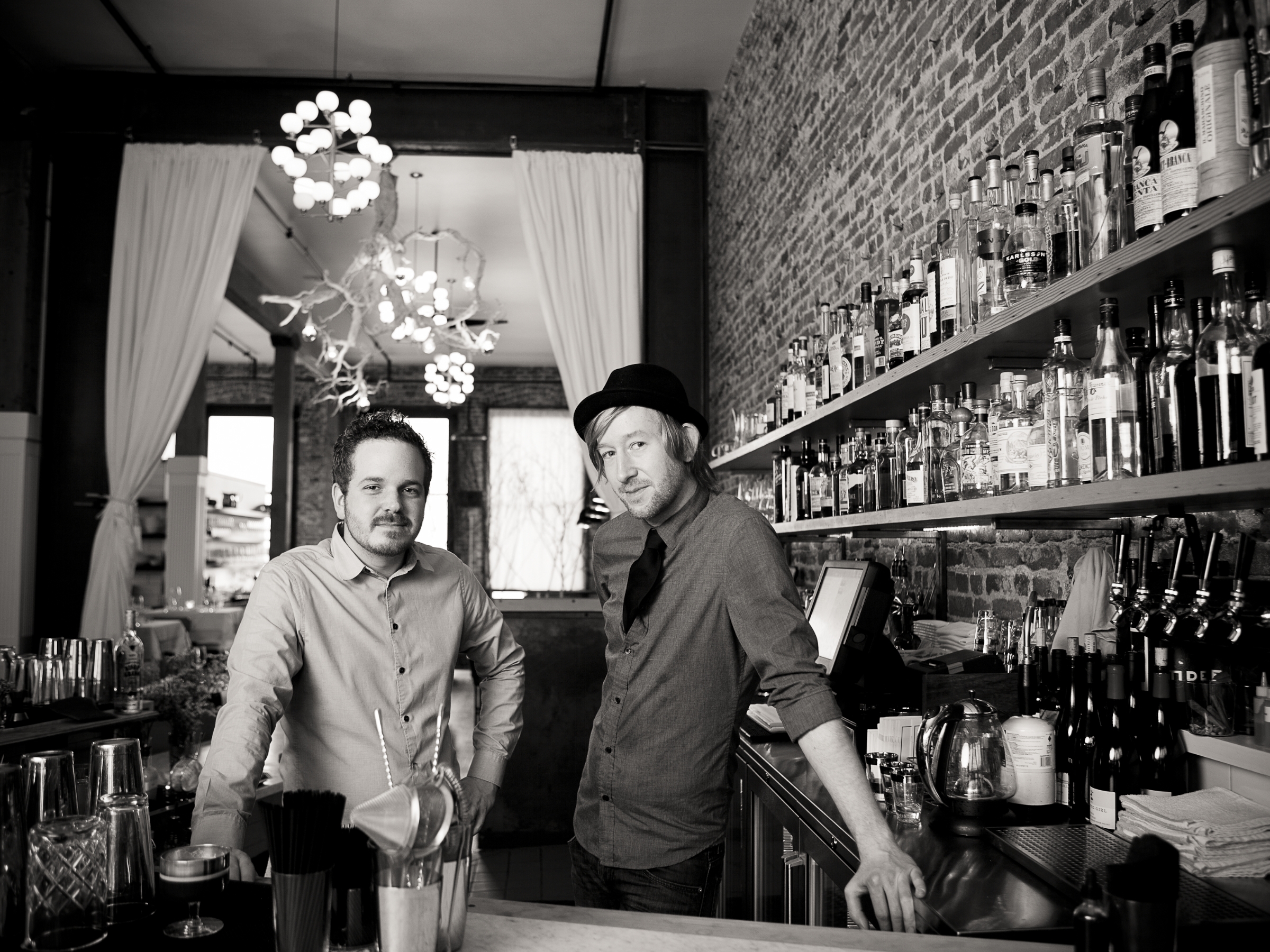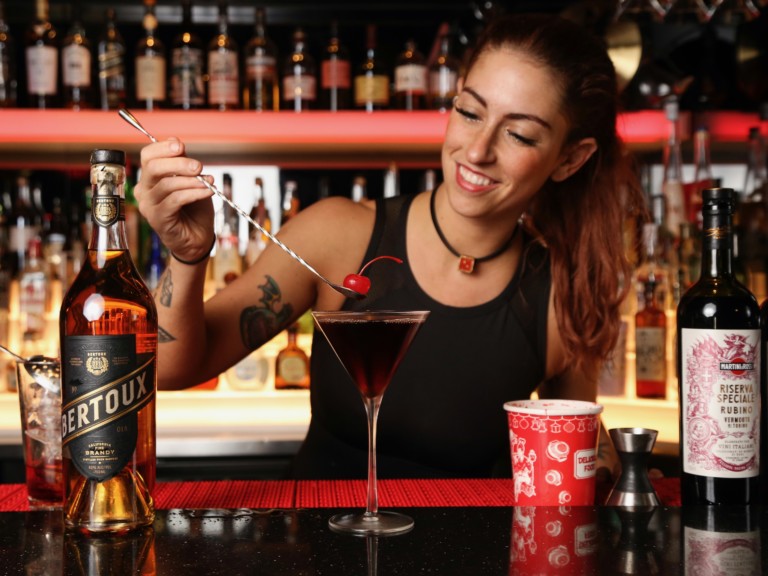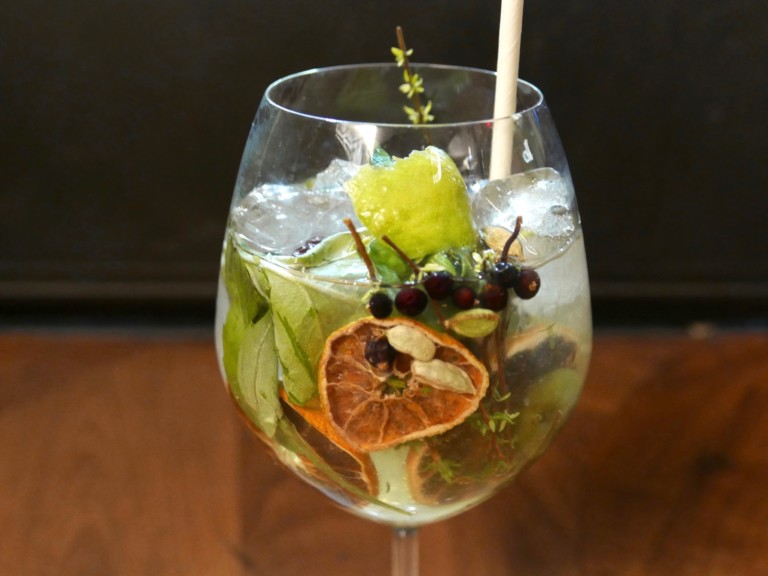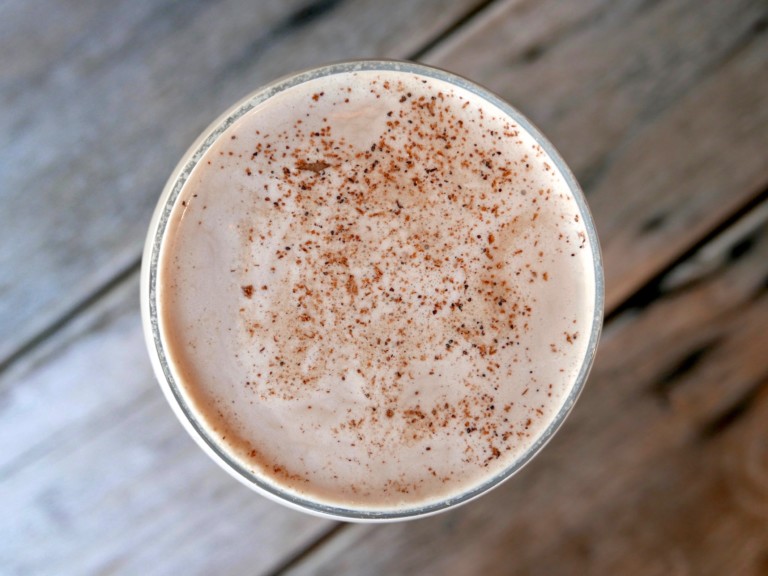Illinois native Ethan Terry grew up about two hours outside of Chicago, in a 2000-person town with no stoplights called Polo. He moved to San Francisco to study film at the Academy of Art University, and started bartending. It wasn’t long before life behind the bar took over, starting at Annabelle’s Bar & Bistro. Terry also became a founding member in the Cocktail Lab with Tim Zohn, Danny Louie and Brandon Josie. Last year, he joined Lab-mate Zohn at the seasonally focused AQ Restaurant & Bar. At AQ, Terry collaborates with fellow bartenders on a market-driven cocktail menu. On February 10, we spoke by phone, and Zohn shared several spirited insights.
Do you have a first cocktail memory, good or bad?
Absolutely. The first cocktail that I had was a Manhattan and it was down the street from the hotel I moved into, the Vesuvio. I remember stumbling in there in a new city, and being freshly 21, wanted to order something I thought sounded sophisticated. Up until then, I probably drank gin and tonics and beer. It was a great memory. It was fantastic. It really kind of changed stuff for me…At that point in my cocktail education, it was a fake it until you make it attitude, ordering things I was supposed to be ordering, until I came to like then.
What was your very first bar job, and what was your first night like behind the bar?
It’s funny, I remember it pretty well, but I probably shouldn’t. My first job in San Francisco was at Annabelle’s Bar & Bistro. I’d been working retail up until that point. This was 2006, and I got a job as a barback and was hoping to break into bartending. I’d worked some lunch shifts as a barback, but the first night as a barback – I remember I was being trained off the clock – I was scheduled to work lunches, and I’d come into learn and not get paid in the hopes of working nights. However, I was paid in drinks. I had a kid in a candy store look. I got a chance to try everything I wanted behind the bar, in lieu of payment. That got out of control pretty fast. I remember last call and closing down the bar. He managed to get my address out of me and got me home okay. I found early on how to find that limit and stick to it.
Did you become interested in spirits or cocktails first?
I started with cocktails, sort of the entry point. A little bit easier to put those spirits down when they’re balanced up and mixed up instead of straight spirits. As a consumer, I was more interested in cocktails, but when I started bartending, I started looking at base components. I remember thinking, “How does Tanqueray 10 taste, as opposed to regular Tanqueray?” It sort of took off from there.
Was it a given that you’d work with cocktails and spirits for a living, or did you consider filmmaking?
I certainly considered filmmaking. It’s what I wanted to do. So many bartenders start off, it’s a departure or way to pay for school. Tim and I were both looking to cut our teeth at the time the cocktail renaissance exploded. We both saw the potential in building a career around it. It’s funny to go back to the Midwest and tell people you’re bartending. People would say, “You’re almost 30 and you’re still bartending?” It’s almost as if they’re saying, “When are you going to get a real job?” It’s not understood universally yet that it is a real job. Whether you’re behind the bar for the rest of your days – some people need that daily interaction, and are really good at it – or you go on to consult or open your own bar. I can’t imagine doing anything else.
Who’s one bartender you’ve never worked with that you would most like to work with, and how come?
There are so many people in this city that are incredibly influential for a number of reasons. My goal is to try to work with any one of them, but if I had to pick, I would say, I’d love to work with Dominic Venegas. Dominic has been influential to a number of us for years and years, and since he’s worked in any number of bars, the odds are that you would have crossed over with him. Every time I sit down for a drink with him, I learn something. The chance to get behind the bar with him – and unfairly – and I say unfairly because he’s one of the people that built this cocktail scene from the ground up. Tim and I got to jump into this career and sort of lifestyle or scene at its peak, when a lot of its groundwork had been laid for us by people like Dominic or Marco Dionysos. We’re incredibly grateful for that.
As far as naming cocktails, what’s your approach?
I actually keep a list on my cellphone in Evernote and every time I come across a turn or phrases, I type it down. I’ve got a list ongoing of 90 names. When I come up with a cocktail or flavor combination, I like to go back and find what fits. I was going back through old musical terms, for example, that I hadn’t looked at since high school. There’s a little musical symbol called the fermata. It’s an old musical term in sheet music, in notation, meaning you hang on a note until the conductor tells you to go. You’re playing, and the whole band will hang on it until the conductor’s ready to go. I was coming up with drinks for an event – there was a long mid-note on the palate before going to the end. I came across the fermata. Rather than come up with that on the spot, I consulted a list of ideas I had.
How are you able to maintain balance in your life, if you’re even able to?









Leave a Comment